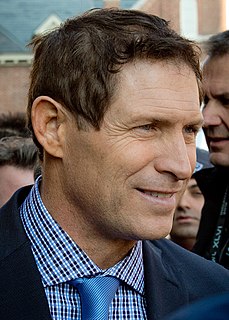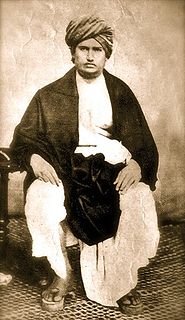A Quote by Eugen Herrigel
Assuming that his talent can survive the increasing strain, there is one scarcely avoidable danger that lies ahead of the pupil on his road to mastery.
Related Quotes
A tutor should not be continually thundering instruction into the ears of his pupil, as if he were pouring it through a funnel, but, after having put the lad, like a young horse, on a trot, before him, to observe his paces, and see what he is able to perform, should, according to the extent of his capacity, induce him to taste, to distinguish, and to find out things for himself; sometimes opening the way, at other times leaving it for him to open; and by abating or increasing his own pace, accommodate his precepts to the capacity of his pupil.
Often nothing keeps the pupil on the move but his faith in his teacher, whose mastery is now beginning to dawn on him .... How far the pupil will go is not the concern of the teacher and master. Hardly has he shown him the right way when he must let him go on alone. There is only one thing more he can do to help him endure his loneliness: he turns him away from himself, from the Master, by exhorting him to go further than he himself has done, and to "climb on the shoulders of his teacher."
Extrapolated, technology wants what life wants:
Increasing efficiency
Increasing opportunity
Increasing emergence
Increasing complexity
Increasing diversity
Increasing specialization
Increasing ubiquity
Increasing freedom
Increasing mutualism
Increasing beauty
Increasing sentience
Increasing structure
Increasing evolvability
I believe that our own experience instructs us that the secret of Education lies in respecting the pupil. It is not for you to choose what he shall know, what he shall do. It is chosen and foreordained, and he only holds the key to his own secret. By your tampering and thwarting and too much governing he may be hindered from his end and kept out of his own. Respect the child. Wait and see the new product of Nature. Nature loves analogies, but not repetitions. Respect the child. Be not too much his parent. Trespass not on his solitude.
Strange is the vigour in a brave man's soul. The strength of his spirit and his irresistible power, the greatness of his heart and the height of his condition, his mighty confidence and contempt of danger, his true security and repose in himself, his liberty to dare and do what he pleaseth, his alacrity in the midst of fears, his invincible temper, are advantages which make him master of fortune.
Danger lies in the writer becoming the victim of his own exaggeration, losing the exact notion of sincerity, and in the end coming to despise truth itself as something too cold, too blunt for his purpose -- as, in fact, not good enough for his insistent emotion. From laughter and tears the descent is easy to sniveling and giggles.
One is born to be a dancer. No teacher can work miracles, nor will years of training make a good dancer of an untalented pupil. One may be able to acquire a certain technical facility, but no one can ever 'acquire an exceptional talent.' I have never prided myself on having an unusually gifted pupil. A Pavlova is no one's pupil but God's.






































